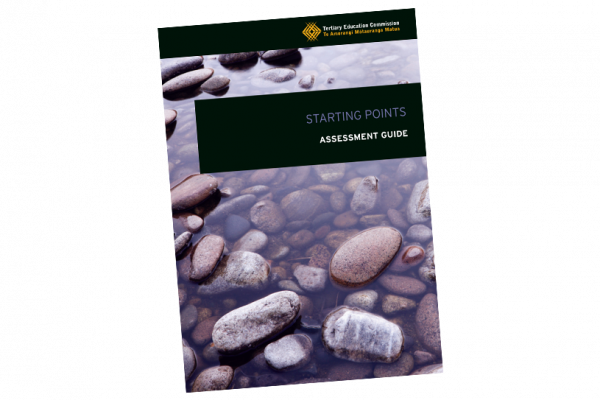Guide
Starting Points | Supporting the Learning Progressions for Adult Literacy
An introduction to the initial knowledge, skills and understandings required by adult learners who are beginning to read and write.
This resource is designed for use by literacy tutors who will have the skills and knowledge to teach at this level and to support tutors (such as vocational tutors) in their work with learners.
A framework for prerequisite skills for reading and writing
Starting Points gives a framework for learning to which tutors can add content and contexts appropriate to the situations and needs of their learners. It has been developed to complement and support the Adult Literacy Learning Progressions. Specifically, the seven areas selected as starting points provide support for working out how to read and write words (decoding written words, forming letters, and writing or encoding words) to enable learners to access and work within the first steps of the Learning Progressions.
They represent critical skills and knowledge that are essential for supporting adult literacy development. Without these skills and knowledge, it is unlikely a learner could advance significantly through the progressions for reading and writing.
Unlike the progressions, the areas selected here as starting points are not represented in strands or in a sequential way, because the skills and knowledge are closely interdependent and are related most closely to only two of the learning progressions: Decoding (in Read with Understanding) and Spelling (in Write to Communicate).
They are underpinned by the skills represented in the Listen with Understanding and Speak to Communicate progressions, particularly those for vocabulary and comprehension.
Learners who are beginning to read and write may have other literacy skills. For example, they may have excellent listening and speaking skills, including listening comprehension.
Some adults may be learning English as a second or other language (ESoL learners) and, for them, a lack of English, along with a limited or very different literacy knowledge in their mother tongue, may be a barrier to progress. Therefore, Starting Points: Supporting the Learning Progressions for Adult Literacy may be useful for some ESoL learners, as well as for speakers whose mother tongue is English, depending on their specific needs.

